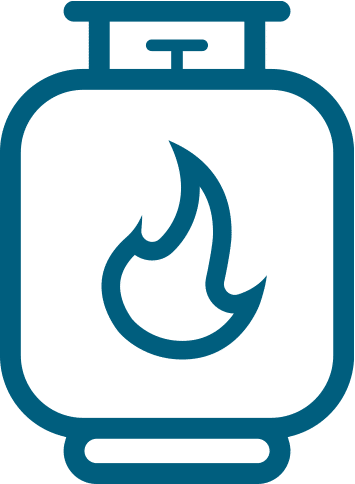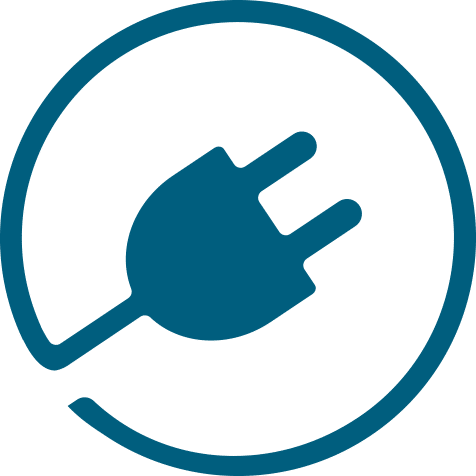
Your free guide to Victorian property compliance legislation.
Australia’s smoke alarm, gas and electrical safety legislation is complex and ever evolving. Smoke Alarm Solutions aims to give property owners peace of mind by being the experts in legislation and compliance, so you don’t have to be. However, the key requirements have been summarised here, so you are informed of your obligations.
Quick Links – See legal requirements for:
Victorian Smoke Alarm Legislation – Overview
Property owners need to be aware that when it comes to smoke alarm maintenance, they need to adhere to two pieces of regulations: Federal requirements and state-based requirements.
Rental Properties
What Landlords and Property Managers need to know
Rental property owners need to be aware of not only their responsibilities when it comes to smoke alarms, but also the additional compulsory safety checks for gas and electrical appliances and fittings stipulated by the Residential Tenancies Regulations 2021.
Smoke alarm safety check
To be carried out every year
Electrical safety check
To be carried out every second year
Gas safety check
To be carried out every second year

In Victorian legislation, tenants are referred to as ‘renters’ and landlords are referred to as ‘rental providers’.
General smoke alarm responsibilities
Rental providers must ensure their properties have working smoke alarms that are correctly installed. Smoke alarms must be installed on each storey and between each part of the property containing bedrooms and the remainder of the property.
There is also a requirement to provide the the following information:
- About how to use and test the smoke alarms in the property;
- About their obligations to not tamper with any smoke alarms and to report if any smoke alarms are not in working order to the rental provider as soon as practicable; and
- The date of the last smoke alarm test.
This information must be provided in writing on or before the commencement of a residential rental agreement. The date of the last smoke alarm test must be included on the condition report.
Smoke alarm maintenance requirements
Rental providers must ensure smoke alarms:
- are tested according to the manufacturer’s instructions at least once every 12 months;
- have their batteries replaced as required;
- are replaced or repaired when not in working order; and
- are replaced when they have expired – smoke alarms are considered expired when they reach 10 years from the manufacture date.
It’s important to note that smoke alarms that are not in working order are classed as an urgent repair. The repair or replacement should be done by a suitably qualified person – if the smoke alarm is hardwired a qualified electrician must complete the works.
Gas safety check responsibilities
The rental provider must arrange for a licensed or registered Type A gasfitter to conduct a safety check of any appliance, fixture, or fitting that use or supply gas. This safety check must be completed every two years.
Electrical safety upgrades
From 29 March 2023, rental providers must also make sure a property meets new minimum standards and ensure modern style switchboards, with circuit breakers and electrical safety switches, are installed.
Properties may have different types of switchboards installed depending on their age – meaning some may already be compliant, some may need to just have components added to meet compliance, and some may need to be replaced entirely. To check or upgrade the switchboard in a rental property a licensed or registered electrician must be engaged.
If a property is non-compliant, renters have the right to end their rental agreement before moving in without any fees. If they have already moved in, they have the right to request an urgent repair.
Electrical safety check requirements
The rental provider must arrange for a licensed or registered electrician to conduct a safety check of all electrical installations, appliances, and fittings. This safety check must be completed every two years.
Need a safety check solution for your rental properties?
Smoke Alarm Solutions will look after the compliance of your entire rent roll with our professional, affordable, and time-saving service packages.
Selling a Property
What Home Sellers and Sales Agents need to know
Seller obligations
Property owners must ensure their properties have working smoke alarms that are correctly installed. Smoke alarms must be installed on each storey and between each part of the property containing bedrooms and the remainder of the property.
It is best practice to get the smoke alarms checked in a property you are selling or buying to check if they meet legislative standards.
Would you like a smoke alarm compliance certificate for a property you’re selling?
Smoke Alarm Solutions will help you meet your legal responsibilities with our professional, affordable, and time-saving service and installation solutions.
Owners Legislation
What Owner Occupiers need to know
Maintenance responsibilities
Homeowners should regularly test and clean and change the batteries in their smoke alarms as best practice to ensure their safety. Homeowners are required to replace any smoke alarms that do not operate when tested and any that were manufactured more than 10 years ago. Replacement alarms must meet Australian standard AS 3786-2014. If the previously installed alarm was hardwired it must be replaced with a hardwired alarm
Current smoke alarm requirements
Currently, smoke alarms in owner-occupied properties should, at minimum, be installed on each storey and between each part of the property containing bedrooms and the remainder of the property.
Need a smoke alarm maintenance solution for your home?
Smoke Alarm Solutions will give you peace of mind with our professional, affordable service packages that look after the compliance of smoke alarms in your home.
Tenants
Renter FYIs
As outlined in the General Tenancy Agreement it is the responsibility of a renter in the rental property to:
- not to tamper with or remove the smoke alarms in the property; and
- must give written notice to the rental provider as soon as practicable after becoming aware that a smoke alarm is not in working order.
Renters also must be aware that rental providers may need access to the property from time to time to meet their smoke alarm, electrical, and gas legislative obligations.
View FAQsLegislation References
Federal Legislation
Property owners must ensure their property is properly fitted with the required number of working smoke alarms, complying with the Australian Standard (3786:2014), and they are installed as outlined in the Building Code of Australia (BCA). This legislation is applicable to all states of Australia.
State Legislation
Current Requirements means the legislative requirements stipulated by the Victoria Building Act 1993; Residential Tenancies Amendment Act 2018; and the Electricity Safety Act 1998 applicable to existent smoke alarms and smoke alarm installations and related electrical work (if applicable).
General Note
Considerations around compliance of the smoke alarms at the Inspection Address are the types of smoke alarms and smoke alarm installations, build dates, including dates of significant renovations, and building classes.
Glossary of Terms:
Dwellings – houses, townhouses, and units.
Storey – levels of a dwelling.
Hardwired – smoke alarm is wired into a dwelling’s electricity supply.
Urgent repairs – are defined by the law and must be done immediately as they make the property unsafe to live in.
AS 3786-2014 – An Australian standard applicable to smoke alarms. This standard specifies requirements, test methods and functional criteria for smoke alarms that operate using scattered light, transmitted light or ionization.
Rental providers – landlords and their agents.
Renters – tenants of the rental property.
Other best practice safety checks
Corded Window Checks
Property owners who have blinds or curtains that have cords installed in their properties should ensure they meet safety requirements. The Australian Competition and Consumer Commission (“ACCC”) identified a major hazard with loop cord systems of 220mm or greater that hang at or lower than 1600mm from the floor as young children face the risk of strangulation. As a result, the ACCC issued Mandatory Standards known as The Trade Practices (Consumer Product Safety Standard – Corded Internal Window Coverings) Regulations 2010 which regulate the design, construction and labelling of corded window furnishings.
Cords should have warning labels attached and should be fitted with devices that prevent cords from hanging down.
Smoke Alarm Solutions offers corded window checks as an additional service offering – we inspect all the corded windows in your property and identify any that may be a potential hazard and install devices to stop the cords hanging down if necessary.
Safety Switch Function Tests
A safety switch is a device that will switch off the electricity supply if a possible electrical fault is detected. This is to help prevent electric shock and electricity related fires. Property owners must have safety switches installed in their properties.
It is best practice to have these safety switches regularly tested to ensure they are operatin correctly. Smoke Alarm Solutions offers safety switch function testing as an additional service offering. At the smoke alarm inspection, our field team member will also push test the safety switch and report whether it passed or failed.
Water Meter Reading Service
Smoke Alarm Solutions offers a water meter reading service as an add-on to some of our packages. Whilst onsite to carry out compliance work, if requested, our technicians can also locate the water meter and read both the standard and recycled usage. This service proves particularly valuable for properties situated in specific Australian jurisdictions where tenants can be held accountable for excessive water consumption. It is important to note that certain conditions must be met for eligibility, including individual metering and adherence to specific water efficiency requirements. To determine the suitability of this service for your specific situation, we recommend consulting your property manager who can provide additional guidance.
Get the latest property compliance updates
Sign up to our free email updates on legislation and property management best practices

